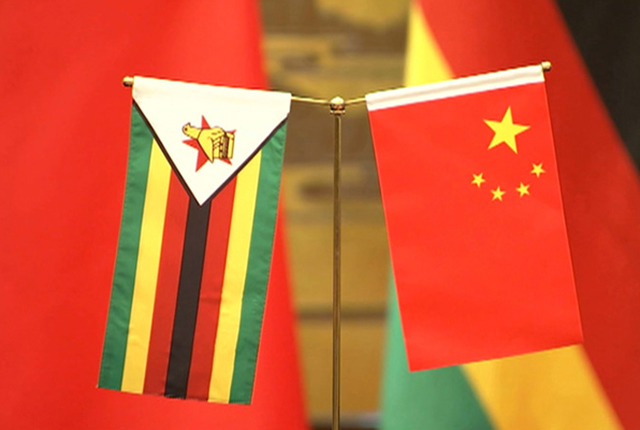Publisher at centre of controversy

Beaven Tapureta Bookshelf
Author and publisher Tatenda Charles Munyuki, who owns the imprint Penfeatherz Media, is at the centre of controversy over the way he has worked with some writers under his stable.
Penfeatherz Media, Darling Kind Publishing and Harp Bookz International are imprints of the Tatenda Charles Munyuki Publishing Company and each specialise in different genres. The company is one of the emerging local publishing houses giving a chance to some new writers whom established or traditional publishers sticking to rigorous ‘professionalism’ may have rejected.
Among the books reviewed by Bookshelf so far, some have been published by this company. Munyuki himself has authored and published more than seventy books, including the 2015 NAMA nominated “The Mystery of the Waterfalls Thief”. Bookshelf also received from him a yet-to-be-reviewed 700-paged voluminous novel titled “Exclusive Zone Angels: The Chosen Ones”. This is undoubtedly the longest novel ever to come out of Zimbabwe but it remains to be seen how it fares in terms of story quality.
Now Munyuki is at the centre of controversy. His publishing imprint Penfeatherz Media has split ways with two of its long-time authors Kelvin Mangwende and Monica Rupazo after these authors complained about their unpaid royalties, sloppy editing of their books and other issues.
The contract termination this year between Penfeatherz and the two authors is legally backed in the contract’s article which states such action is taken when there are “any problems the publisher may designate unsolvable when dealing with the author, be it creative or communication differences between both parties”.
However, even though the contract termination has been mutually agreed to, Mangwende and Rupazo feel that they have been wronged by the publisher because the decision to terminate their contracts came after they tried to get convincing explanation from Munyuki regarding the troublesome issues.
Mangwende, author of six books published by Penfeatherz Media from 2014 to date, including the recent NAMA-nominated Shona poetry anthology “Misodzi YeRombe” (2016), is charging that for his six books he earned no royalty because publisher lacked marketing and promotional strategies for them. He says since 2014, the only money he has enjoyed so far from his sweat is the $80,00 he got as a gift from Dr Dorcas Gwata at a dinner held for the 2017 NAMA nominees this year. Furthermore, Mangwende and Rupazo say Munyuki has a tendency to release a book exactly as it came with its mistakes missed by the author. No editing was done. Though all the book contracts have been terminated, Mangwende says he is worried the publisher seems to have ‘retained’ copyright or ownership of the NAMA-nominated “Misodzi YeRombe” when actually he (Mangwende) is the one who made all efforts to market the book and submit it for the awards.
Normally, when a book is published an author gets ten free copies but this is not so when dealing with Munyuki.
“The publisher did not give the initial ten free copies to the writer. I had to look for money to buy my own books and even when I bought and tried to sell them, I made no real profit,” complained Mangwende.
Twenty-three year old Rupazo, author of “Confiance”, “My Quite Place” and “Loving Trust”, all published by Penfeatherz Media, says her wrangle with the publisher came after she questioned the legitimacy of her books’ ISBNs and the same issues raised by Mangwende. She also complained about editorial neglect and the burden of marketing her own books while publisher does nothing except advertising on Facebook. The International Standard Book Number or ISBN which gives positive identification of a book all over the world is of great help to publishers, booksellers and librarians as the digits tersely show the language of the book, the publisher, book title and country. Usually, in each country the government appoints an agency to assign ISBNs to publishers. In Zimbabwe, it is issued by the National Archives.
“I did my research and learnt about the ISBN and tax payment. I tried to look for my books online using their ISBN’s but found none. That is when I panicked and feared publisher might be stealing a great deal from me. When I asked the publisher, he said ‘unonetsa you demand too much’ and he sent me contract termination letter,” Rupazo said.
Bookshelf did approach the publisher Munyuki to hear his side of the story and he said he was right to terminate the contracts because he did not want to be bound to writers who were not comfortable with his company.
“There are writers who feel unhappy when they get bad reviews or when the book isn’t made a set book or a friend didn’t like the cover design or such,” Munyuki said.
The ‘bad’ book reviews which Munyuki could be referring to are those particularly done for Mangwende’s books “Demo Rine Ropa” by Bookshelf (The Herald) and “Chaminuka” by Silence Charumbira (The Standard).
Last year, Bookshelf observed that new writer Kelvin Mangwende and publisher Penfeatherz Media made too much haste in their jobs when they put together Mangwende’s Shona short story collection “Demo Rine Ropa”. Charumbira, in his review of “Chaminuka” (2014, Penfeatherz), a Shona play also by Mangwende, noted that while this is a reverting play, “one troubling trend in the play, however, is the quality of editing with several mistakes and unnecessary repetitions”. Yet despite all these observations by reviewers, the next books published by Penfeatherz repeated same editorial mistakes, leading to writers complaining.
Munyuki also said that he thinks what most writers who are under his stable tend to overlook is that he is a writer first and therefore he understands the challenges involved.
“I am not a businessman who doesn’t know what it is all about and who just want to exploit them. I could just as easily as only focus on myself and my publications but I care enough to see that other writers are published also. That is why I terminate contracts when someone wants to take advantage me,” said Munyuki.







Comments